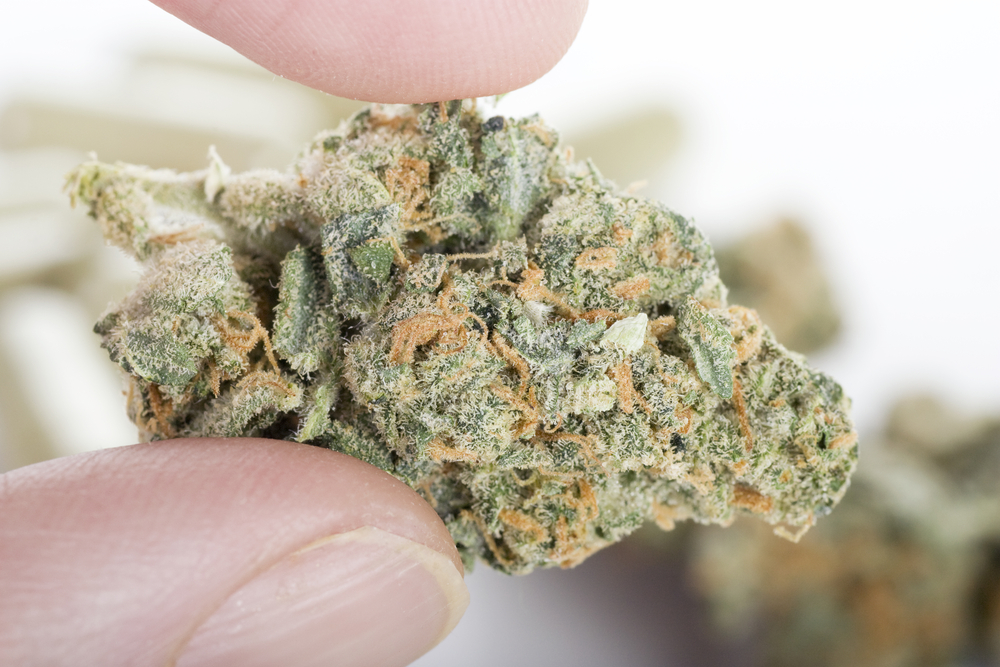The cannabis world is perpetually evolving, and as we push the boundaries of its applications, it's crucial to peel back the layers beyond the more famous cannabinoids like THC and CBD. One such cannabinoid that is quickly gaining traction is Tetrahydrocannabinolic Acid or THCA. Unlike its well-known derivative THC, thca flower is non-psychoactive yet harbors a wealth of health benefits, making it a potential game-changer in the fields of medicine and wellness.

Understanding THCA Flower
At first glance, the idea of consuming raw cannabis might seem unorthodox, possibly unappealing, and certainly, unconventional to traditional cannabis users. However, these perceptions rapidly shift when we recognize that the heat applied during traditional forms of cannabis consumption, such as smoking or vaping, cause THCA to decarboxylate into THC, which provides its infamous high. But, in its raw state, THCA is said to offer anti-inflammatory, neuroprotective, and anti-proliferative effects without intoxicating qualities, possibly making it one of the most potent anti-cancer agents in the field of natural medicine.
The Science Behind THCA
Understanding THCA requires a small dip into science. THCA is the primary cannabinoid found in the unheated cannabis plant. It's also the acidic precursor to THC, or delta-9-tetrahydrocannabinol. Unlike THC, THCA is not inherently psychoactive, which means it doesn’t cause the high associated with cannabis use. However, ongoing research suggests that THCA has unique properties that contribute to its therapeutic potential.
Potential Health Benefits of THCA
Several preliminary studies have shown that THCA has the potential to act as a neuroprotective agent. This means it could help protect the nervous system, potentially slowing the progression of neurodegenerative diseases like Parkinson’s or Alzheimer’s. Additionally, THCA may work as an effective anti-emetic, suppressing nausea and vomiting, making it a potentially valuable treatment for patients undergoing chemotherapy, or suffering from conditions that cause severe nausea.
Incorporating THCA into Your Health Regimen
The question arises, how can one integrate THCA into their health regimen? The answer is a growing trend in the health community: raw cannabis juicing. By consuming raw cannabis, users can avoid the high associated with THC while benefiting from the multitude of healthful properties that THCA offers.
Juicing Raw Cannabis
Juicing raw cannabis is akin to any other green juice regimen. The most accessible method is to blend raw cannabis leaves and buds with other fruits and vegetables to create a drink that's as palatable as it is healthful. This provides an easy and direct method of consuming THCA, along with a rich dose of other vitamins, minerals, and antioxidants naturally found in the cannabis plant.
Other Consumption Methods
For those who prefer not to juice, there are preparations of the raw plant available in the form of capsules, tinctures, or powders, which can be equally effective. These provide a more measured and convenient way to incorporate THCA into your daily routine, particularly for those who might not have access to fresh cannabis or prefer the simplicity of a supplement.
The Road Ahead for THCA
The data surrounding THCA is promising, but more research is needed to fully understand its potential. Clinical trials are limited, and while anecdotal evidence is strong, it's not definitive. The future of THCA hinges on conducting robust scientific studies to explore its full range of benefits. Additionally, regulations and consumer education must evolve to support the use of this cannabinoid in a wellness context.
Industry and Regulatory Considerations
As the popularity of THCA grows, it's important for the cannabis industry and regulatory bodies to adapt to accommodate the unique needs of consumers seeking the health benefits of this compound. This includes developing standardized products, dosage recommendations, and ensuring access to safe, quality products for those using THCA as part of a treatment plan.
Public Awareness and Education
Another aspect that will shape the future of THCA is public awareness and education. Patients, healthcare professionals, and the wider public need accurate, up-to-date information on the potential uses and risks of THCA. By equipping people with knowledge, we empower them to make informed decisions about their health and wellness.
Conclusion: Navigating a New Frontier
The emergence of THCA on the health and wellness scene is a testament to the untapped potential within cannabis. Its non-psychoactive nature means that it’s accessible to a wider audience, including those who may be sensitive to the effects of THC. As research continues and regulations adapt, we can expect to see a growing acceptance of THCA as a genuine player in the wellness toolkit.
For the curious and health-conscious, THCA presents a new frontier worth exploring. Whether through juicing or alternative methods, the benefits of this cannabinoid could be just a sip away. As we unravel the therapeutic terrain of THCA, we stand at the precipice of a future where cannabis is not just a source of respite, but a symbol of hope for many seeking an alternative path to well-being.
In this confluence of science, medicine, and the age-old cannabis plant, THCA flower represents a bridge between tradition and innovation, inviting us to rethink old paradigms and discover new ways to harness the gifts of nature. It is an exciting time indeed for those invested in the power of plants and the promise they hold for a healthier future.
 icons at the top right corner of the subsection.
icons at the top right corner of the subsection.